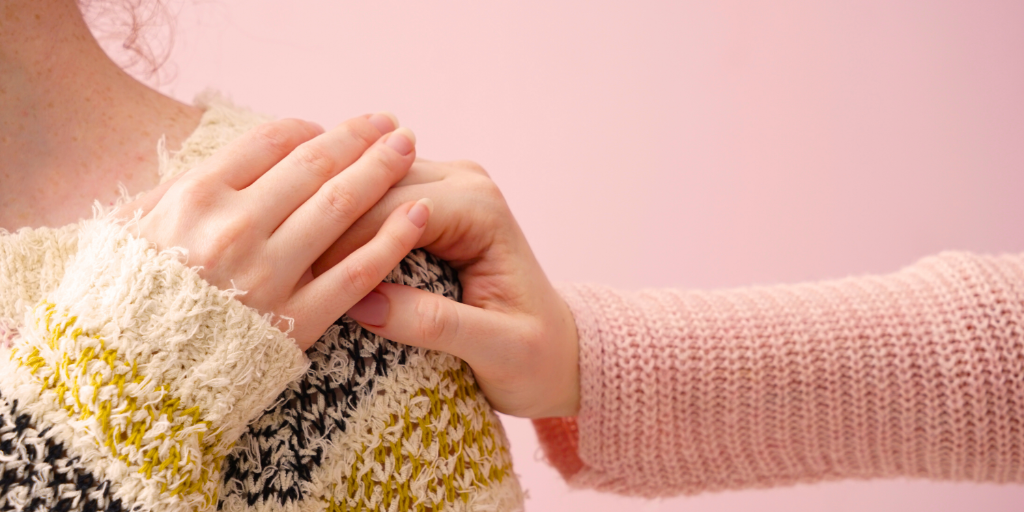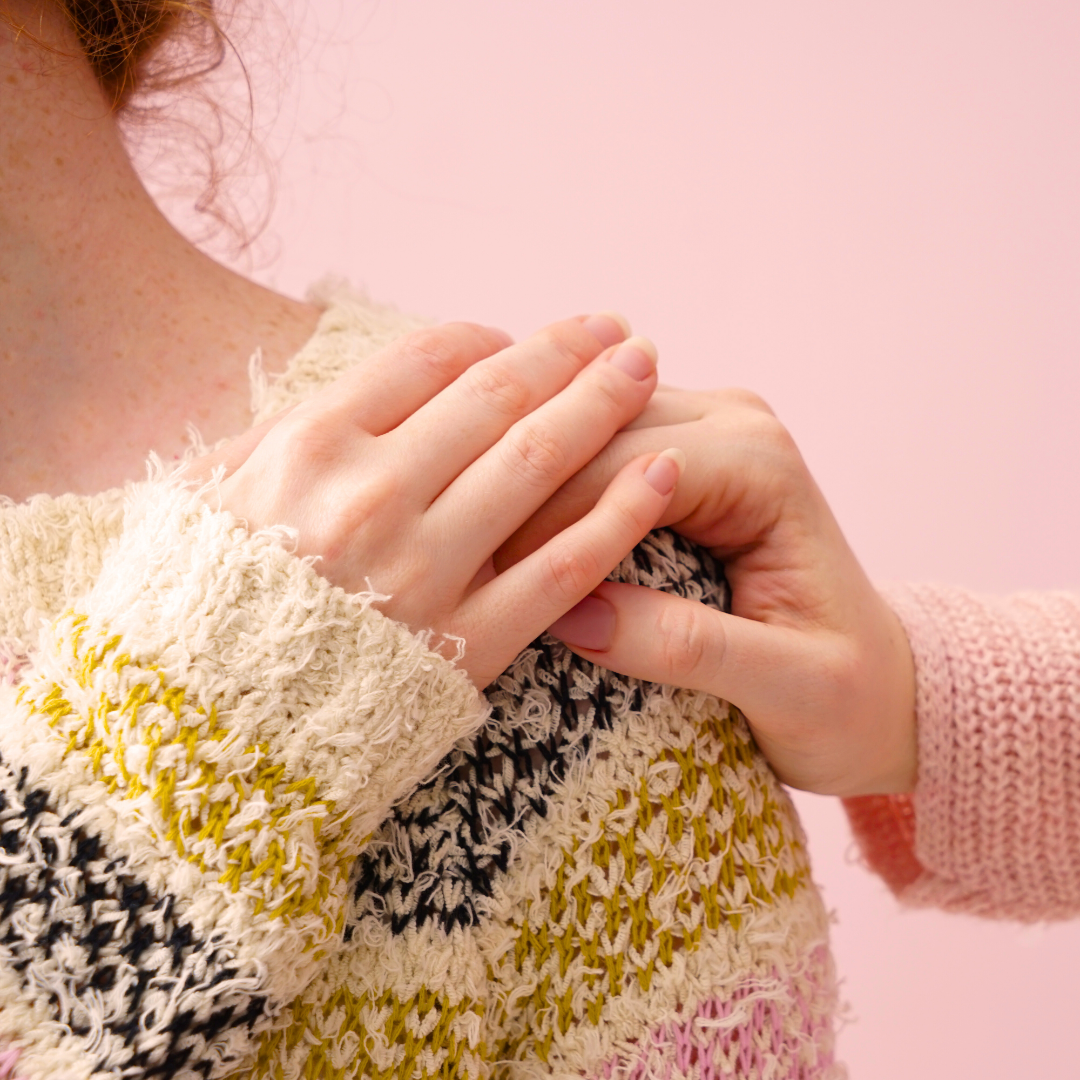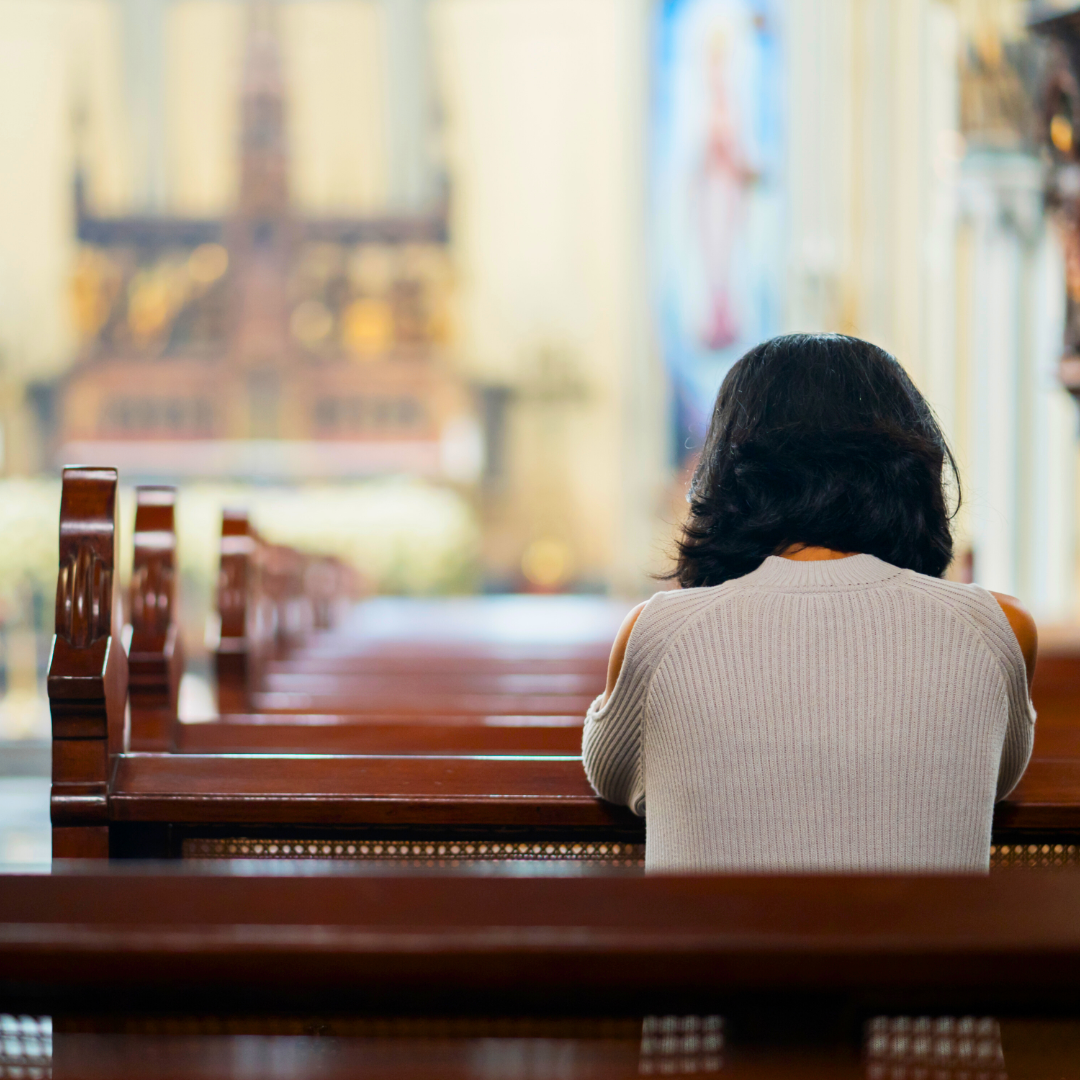
After her son went through cancer treatment, Amanda Woodiel looks back on important lessons about suffering, surrender, and accepting help.
I’ve felt for a while now that the Lord is asking me to write this post—as much for me, dear reader, as for you. I truly hope you will never hear the words “it’s cancer” regarding your child, but I know as surely as I know that my son will badger his brother or that my daughter will change her mind (again) that you also will encounter very difficult trials in your parenthood.
You can read about the story of my son here on CatholicMom.com. His chemo ended in late March 2023, and his port was removed in April. The next several months saw our family getting back on our feet while he grew stronger. Now, 8 months later, I gaze at our robust family and wonder: was that really us? And are we the same as we were before?
I surely hope that we are not. I hope that we’ve grown heavenward. I don’t think I learned anything new during that time of my life. But I do think that I learned certain things better, deeper. My heart learned it instead of just my head.
Our children are not our own
We all know this. We know that one day they will move out and forge their own path. We even know–theoretically–that they belong to God. But serious childhood illness–the kind where you hear yourself ask the doctor “Do any children ever survive this?” makes it palpable. Days where you find yourself staring at his pallid sleeping figure on the couch with tears streaming down your face, wondering if there will be a next year for him brings you face-to-face with the fact that your child is not yours to keep. It’s heartbreaking; it’s scary. But it’s true. If we learn how to live in the space where we hold our children close but with an open hand, we parent them not from fear but in freedom.
You cannot suffer for your children, only with your children
Sometimes, no matter how much we wish it were different, God lets our kids—His kids—go through hard things. Often the best thing we can do for our children is to suffer with them. What a temptation it is to habitually gloss over the tough things, talk in an upbeat way about the future, and point out the “silver lining!” Yet no words of Mary during the Passion are recorded in the Bible—only her presence at His crucified feet is. Despite our natural desire as parents to fix, to research, to blame, to rationally discuss whatever is causing the suffering, Mary shows us that enduring the Passion alongside our child is the essential task.

We are designed to need each other
It is not good for man to be alone. Families don’t exist in isolation, either, and St. Paul teaches that we each have been given diverse gifts to be used to bless the church and the world. This played out so beautifully during the cancer days as people offered help to us out of their gifts and blessings. One cleaned; another took care of the other kids; a third helped us financially; and another sent a “how to do magic tricks” DVD to keep my son occupied while he was in the hospital. Many others prayed on our behalf when the words felt stuck within me.
Asking for help and accepting help can be hard, but I’m convinced it is one of the most countercultural things we can do as Christians. Why? Precisely because it images the body of Christ. What is the fruit of it? We are brought out of isolation and woven together; we are given an opportunity to practice works of mercy; and the edges of suffering don’t have quite as much sting. We need to offer help and accept it.
The thing to do is to surrender to God
Before my son had cancer, I had not heard of the surrender novena. You might think I’m talking about the serenity prayer, the illustration of which usually shows footsteps in the sand; I’m not. I’m talking about the one St. Padre Pio espoused. The one that says, “Oh Jesus, I surrender myself to you, take care of everything!” Surrender, I’ve learned, is so powerful because it embraces so much at once. To surrender is to live in humility (I am not in control); to make an act of faith (there is a God); to make an act of trust (He loves me and cares); and to proclaim His power (You can take care of everything). This is why day 9 of the novena says, “A thousand prayers cannot equal one single act of surrender, remember this well.”
What does this look like on the other side? It comes out in small things. Here’s an example: Jack, the child who had cancer, is exploring the possibility of going to a high school 45 minutes away for his junior and senior year. While I think it would suit him well, it would completely change the dynamic of our (homeschooled) family life. Ah, but God knows better than I what the best thing is. At the beginning of the year, it will take time to transport him; later in the year, we’ll need an extra car so he can drive. Money and time are what we definitively do not have. Oh Jesus, I surrender myself to you. Take care of everything. But what if he, a new driver, gets in a car accident? He’s God’s and God will take care of him. Perhaps I’ll need to ask around if anyone is headed in that direction and can help, even though it will be an inconvenience to them. It’s okay to need each other—I can’t do it on my own.
Click to tweet:
Often the best thing we can do for our children is to suffer with them. #CatholicMom
I am much more at peace about so many things than I otherwise would have been. And when I’m not? I pull out the surrender novena and teach my heart all over again.

Copyright 2024 Amanda Woodiel
Images: Canva
About the Author

Amanda Woodiel
Amanda Woodiel is a Catholic convert, a mother to five children ages 14 to 6, a slipshod housekeeper, an enamored wife, and a “good enough” homeschooler who believes that the circumstances of life—both good and bad—are pregnant with grace. Her oldest son was diagnosed with cancer in the summer of 2022, which is providing plenty of opportunities to test that hypothesis.


.png?width=1806&height=731&name=CatholicMom_hcfm_logo1_pos_871c_2728c%20(002).png)
Comments